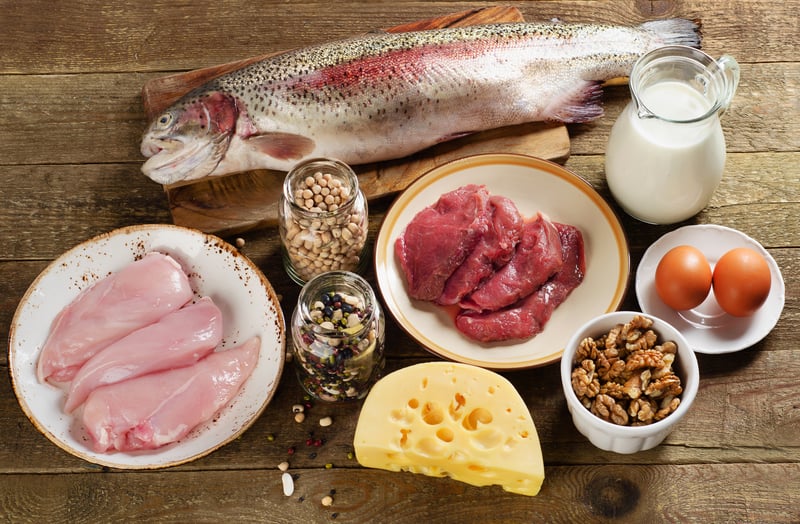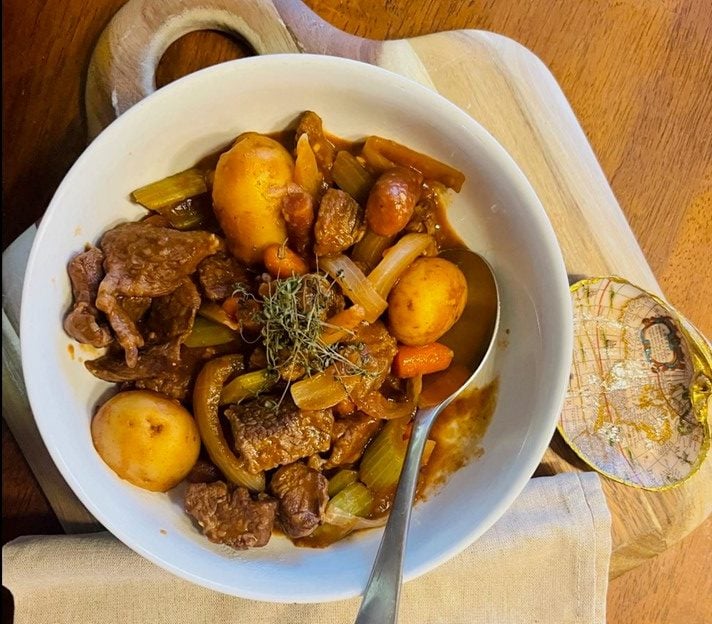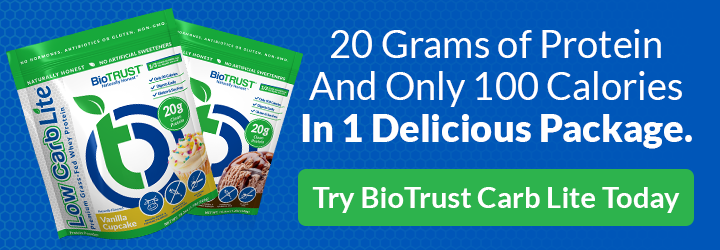A High-Protein Diet: Is It Right for You?

If you’ve heard the buzz around high-protein diets for healthy aging and weight management, you’re not alone. It’s everywhere—from the gym to the grocery store, high-protein eating is a major trend. But just because everyone’s talking about it doesn’t mean it’s right for everyone. So, let’s break down the essentials: Why do we need protein in the first place? How much is “enough,” and how much is ideal for your goals?
Together, let’s dive into the benefits of a high-protein diet and help you figure out if it’s the right choice for you.
Why Is Protein So Important?
Protein is the original multitasker. From building and repairing tissues to acting as enzymes, hormones, and even immune defenders, proteins keep our bodies running smoothly. When we eat protein, our bodies break it down into amino acids—those tiny building blocks essential for so many bodily functions. These amino acids then get reassembled in our bodies into the proteins we need to thrive.
Interestingly, not all amino acids are created equal. Essential amino acids are ones our bodies can’t produce on their own, so we need to get them from food. The body can make conditional amino acids but may require higher amounts during times of stress, while nonessential amino acids are those the body usually produces enough of. But, in reality, all amino acids have their own superpowers for health, so we need a good balance to cover all our bases.
And here’s the kicker: recent research suggests that consuming more protein than the minimum recommended amount could bring additional benefits. A high-protein diet, in particular, may support muscle mass, satiety, and metabolism—all big wins if you’re aiming to age healthfully or get (and stay) in top shape.

How Much Protein Do You Really Need?
While the old standard suggests about 0.8 grams per kilogram (0.36 grams per pound) of body weight per day is sufficient, most experts now agree that for many people, especially those with active lifestyles, weight loss goals, or as they get older, more protein is optimal. Here are just a few of the factors that impact your ideal protein intake:
- Body weight and composition
- Exercise level and goals
- Age (muscle needs can increase with age)
- Overall diet and food preferences
A good rule of thumb for a high-protein diet is about 0.6 to 1 gram of protein per pound of body weight per day, with 0.73 grams per pound being a solid middle ground. For example, someone weighing 150 pounds could aim for about 110 grams of protein per day. And for those who are super active or trying to build muscle, even more may be beneficial.
Research also shows that intakes up to 2 grams of protein per pound (4.4 g/kg) are safe for healthy people, so there’s room to tailor your intake to what feels right for you. Just remember, more isn’t always better, and it’s wise to find a balance that works for your body.
High-Protein Diet Benefits for Weight Loss
What makes high-protein diets so appealing for weight loss? Let’s break down the key metabolic advantages:
- Boosts Metabolism: Protein has a “thermic effect,” meaning your body burns more calories digesting protein than it does for carbs or fats. This burn effect is up to ten times higher for protein, meaning you get a natural calorie burn with each protein-rich meal.
- Keeps You Full: Protein is known for its satiety power. It can help control appetite, cut down cravings, and support better diet quality overall. High-protein meals tend to keep you feeling satisfied longer than meals rich in carbs or fats.
- Preserves Muscle While You Lose Fat: When losing weight, we want to shed fat—not precious muscle. A high-protein diet helps keep your hard-earned muscle mass intact, which also helps keep your metabolism revving.
For weight loss, high-protein intake can be a game changer. Instead of sticking to the minimum 0.8 grams per kilogram of body weight recommended for basic health, aiming for around 1.6 grams per kilogram (about 0.73 grams per pound) can help maximize these weight-loss perks. If you’re looking to lose a significant amount of weight, setting your protein target based on your goal weight can be an effective approach.

Protein Foods for Weight Loss
To get the most from a high-protein diet, focus on high-quality protein sources. High-quality proteins contain a range of essential amino acids, are highly digestible, and offer good protein density without a ton of extra calories. Here are some of the best protein options to build your meals around:
- Meat and Poultry: Think lean cuts from grass-fed or pasture-raised animals.
- Dairy: Yogurt, Greek yogurt, cottage cheese, and kefir are great high-protein dairy options.
- Seafood: Wild-caught options like salmon, sardines, mackerel, and trout.
- Eggs: Preferably from pasture-raised hens for a nutrient boost.
- Protein Supplements: High-quality whey or milk protein blends (preferably hormone and antibiotic-free) and even well-formulated plant protein blends (with complementary proteins and digestive enzymes) can be convenient sources.
- Plant-Based Proteins: Beans, lentils, nuts, and seeds are all excellent choices for vegans, vegetarians, and others who want to eat a more plant-based diet. They are, however, lower in protein density, so more planning is needed to meet protein needs.
Here’s an example day of eating for a 150-pound person aiming for around 110 grams of protein:
- 3 whole eggs: 18 grams
- 1 whey protein shake: 25 grams
- 1 cup Greek yogurt: 22 grams
- 1 cup lentils: 18 grams
- 5 ounces of salmon: 28 grams

Who Should Eat a High-Protein Diet?
Generally speaking, a high-protein diet is safe and beneficial for healthy individuals and can be especially helpful if you:
- Are an athlete
- Work out regularly or intensely
- Are looking to lose fat while maintaining or building muscle
- Want to gain muscle or strength
- Are over 50
- Are recovering from surgery or injury
- Want to lose or maintain weight or struggle with food cravings
That’s pretty much most of us, right? That said, there’s still more to learn, and individual differences do apply.
Interestingly, some genetic factors—like certain variants of the FTO gene (known as the “fat gene”)—may make people particularly responsive to a high-protein diet for weight loss. And while more research is needed, it appears that certain gut microbiome profiles may impact how well someone tolerates a high-protein diet, too.
Can You Overdo It on Protein?
The idea that high-protein diets harm healthy kidneys is mostly a myth. Research shows that intakes as high as 4.4 grams per kilogram of body weight per day are safe for healthy adults. However, like most things, balance is key. Eating high-protein meals every two to three hours isn’t necessary (and can be tough on digestion). Some studies suggest that occasionally lowering protein intake or incorporating fasting might even offer anti-aging benefits.
The Benefits of a High-Protein Diet Takeaways
A high-protein diet might just be the missing piece in your healthy lifestyle puzzle! It can be a fantastic way to support weight loss, maintain muscle, and keep you feeling full and energized. Just remember that everyone’s protein needs are a bit different. Consider your goals, activity level, age, and personal health to find what works best for you. And, if you’re looking for a more personalized approach, consult with a nutritionist or healthcare provider as you find your ideal protein intake.






